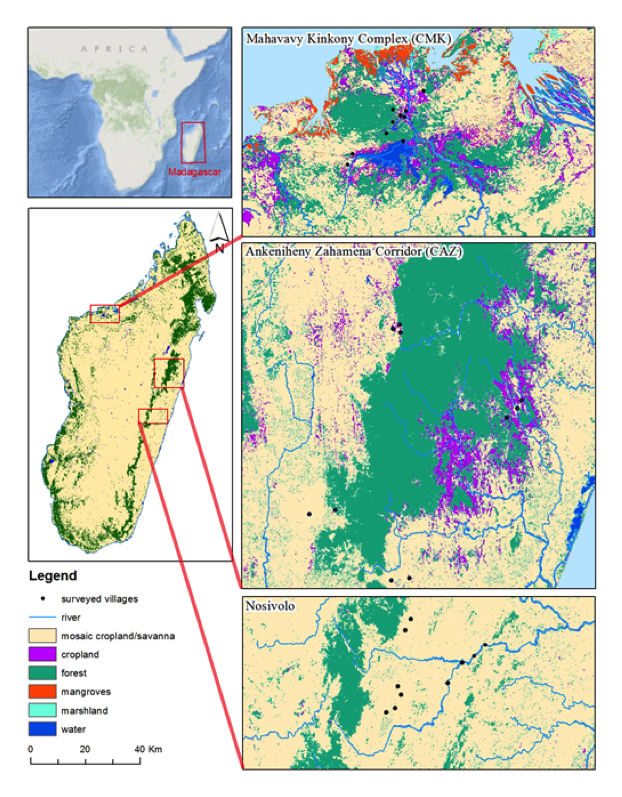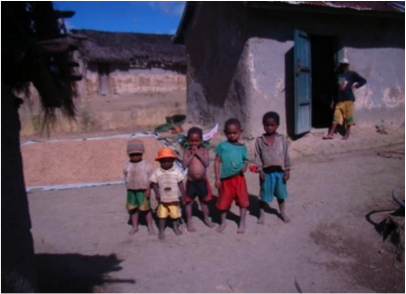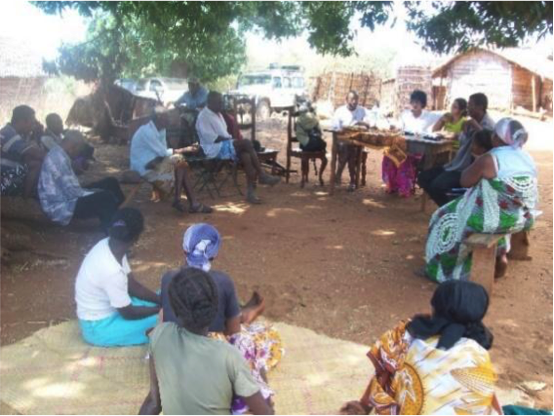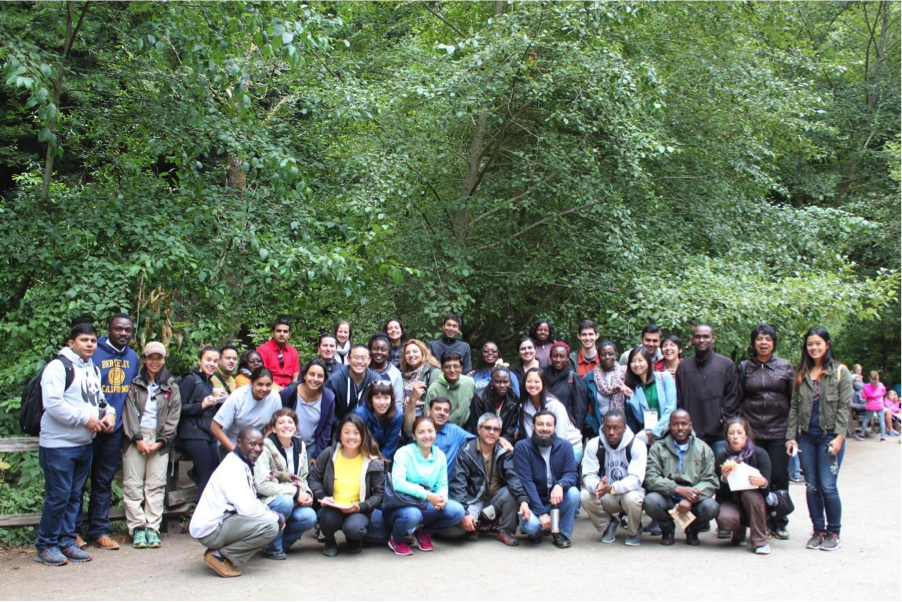by Zo Lalaina Rakotobe (ELP 2016) | Sustainable Production Manager, Conservation International Madagascar
In Madagascar, tropical forests provide important sources of firewood, building materials and wild food for rural communities and are critical for helping communities recover from the impacts of extreme weather events such as cyclones, as they provide farmers with both emergency food supplies and materials for rebuilding damaged homes. However, the Malagasy rural communities are facing two major and intertwined threats: climate change (which threatens their agricultural productivity and livelihoods) and ongoing forest loss and degradation (which affects the availability of forest products and its ecosystem services). Madagascar is one of the tropical countries that is most affected by cyclones globally and has one of the highest rates of cyclones in Africa. Each year, an average of 3 to 4 tropical cyclones originate in the Indian Ocean and the Mozambique Channel and hit Madagascar during the cyclone season from November to April. The associated economic and humanitarian costs of natural disasters in Madagascar are enormous: it is estimated that floods, drought and cyclones have affected more than 11 million people in Madagascar in the last 35 years and resulted in roughly 1 billion US dollars of damage. As far as the forest cover, it had decreased about 40% from the 1950s to 2000 and deforestation is still threatening in some parts of the forest areas. Given the high poverty of Malagasy smallholder farmers (75% of rural farmers) and their extreme vulnerability to climate change, there is an urgent need to improve their resiliency to climate change and to reduce green gas emission. Developing a climate change project that will address these issues by involving multi-stakeholders would be one of the best solutions. Activities such as sustainable agriculture, participatory forest management and wildlife protection have been implemented.
I am the technical coordinator of the sustainable production program with Conservation International Madagascar. My duties include assessing the vulnerability of small farmers living in the peripheral areas of the Zahamena Ankeniheny Forest Corridor to better understand how they are impacted by climate change, their coping strategies (including their use of forest resources) and adaptation strategies that help to improve the resiliency of smallholder farming communities, while conserving the remaining forests. This forest corridor is located in the Eastern part of Madagascar which is more exposed to cyclones and floods.
Implementing a climate change project that addresses livelihood and forest protection needs strong leadership skills as many stakeholders have to agree to collaborate. These stakeholders come from rural farmers, the local Government services, conservation NGOs, rural development NGOs and different Ministries (Environment, Forest and Ecology, Agriculture, Water, Population and Education).
To achieve the project goals, I must have a good relationship with all stakeholders as the technical coordinator of the project despite the fact that some people may be uncooperative and have difficult behavior. The leadership management tools that I have received from the ELP training will enhance my ability to handle such situations. In addition, the various courses offered in the Beahrs ELP training and the experiences learnt from colleagues from different countries will help me update my skills and knowledge. I strongly feel that I am better equipped to implement and assess the impact of our project in conserving biodiversity while improving sustainable production within the target sites. Finally, I really appreciate the ELP’s gender approach that has empowered environmental leaders globally. The inclusion of women is highly commendable. During this training, I have interacted with women from various countries and from different organizations and institutions. As we know, women have critical roles as change agents in communities. I have enjoyed the chilly summer in Berkeley.




